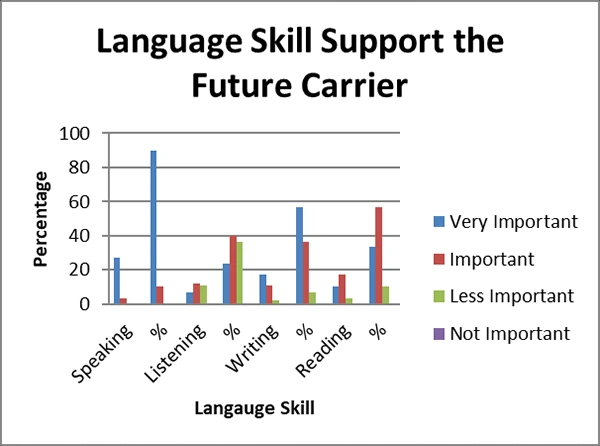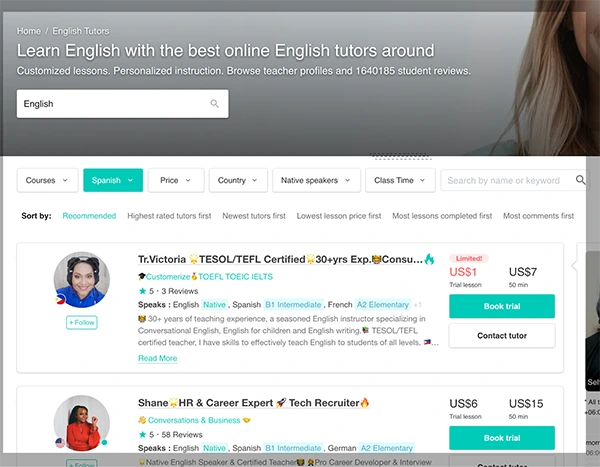
If you are a Spaniard and want to improve your English language skills and expand your vocabulary then this guide is a perfect resource for you. As we all know, effective communication skills are the key to success in almost every field.
Having English language skills will give you an edge in this competitive world. You can use this language for both professional work and personal work like traveling and daily interactions etc.
In this detailed post, we will cover the 40 most common English phrases for Spanish speakers that are frequently used in daily conversations. After grasping these phrases it will become easier for you to communicate effectively in an English-speaking environment.
Let’s Get Talking! With these basic phrases in your toolbox, you’re already equipped to interact with English speakers in a friendly and effective way. So go out there and practice with these phrases.

Interesting Fact
The above graph shows the student’s perception of the importance of English language skills in career growth. The majority of students agreed that English reading and listening skills are very necessary for future careers.
Remember, these are just the starting points. As you progress in your learning journey, you’ll discover even more ways to express yourself and navigate various situations with confidence.
These helpful phrases will allow you to navigate daily situations smoothly, express your needs efficiently, and engage in basic interaction with English speakers.
DO YOU KNOW?
The letter “S” is the letter with which more English words begin than with any other letter.
Knowing some frequently used phrases will not only help to improve your fluency but also make you sound more natural in everyday conversation.
Below, we provide a detailed analysis of 10 such phrases.
This phrase isn’t encouraging actual harm, but it’s a way of wishing someone good luck, especially before they perform on stage. Its origins are superstitious, as it is thought to bring bad luck to wish someone good luck directly.
This idiom implies facing a difficult, unpleasant, or uncomfortable situation bravely. It originated from the practice of having soldiers bite on a bullet during surgery to cope with the pain.
Simply put, it means it’s your turn to take action. This phrase comes from tennis, where after serving the ball, it’s in the other player’s court to respond.
This phrase is used to tell someone that they are pursuing a mistaken or misguided line of thought or course of action.
When something is very easy or effortless, we call it a ‘piece of cake.’ This idiom is believed to come from the tradition of giving cakes as prizes in competitions.
This phrase means to reveal a secret. It’s thought to come from a dishonest practice in medieval markets where sellers would trick buyers by substituting a cat for a pig and keeping it in a bag.
This is a less formal, somewhat humorous way of saying someone has died. It’s an example of a euphemism, a phrase used to soften the impact of harsh or unpleasant realities.
This phrase means to get something exactly right or to speak accurately about a subject. It comes from the precision required in hitting a nail with a hammer.
Inspired by Lewis Carroll’s ‘Alice in Wonderland,’ this phrase signifies entering into a situation or beginning a process that is complex, confusing, or chaotic.
This phrase means to get to the point without wasting time with unnecessary details. It comes from the world of film, where directors would often ‘cut to the chase scene’ to maintain audience interest.
These phrases are effective tools to sound more like a native English speaker and to navigate English interactions with ease.
Learning English isn’t just about knowing phrases; it’s about building confidence and engaging in meaningful conversations. While individual resources like textbooks, dictionaries, and online resources are valuable. But at last, It requires intentional effort, there’s no single “best” method.
You can start with an online tutor or textbook of this language. It will enable you to adjust the foundation of English following your specific needs. This approach allows for immediate feedback and correction. It also accelerates your progress. Also when you have a dedicated guide, it keeps you motivated and active towards your goal. The cost can be a barrier to accessibility.
Dictionaries provide a reliable offline reference, ensuring accurate definitions and correct usage of phrases. You can access this information anytime, regardless of internet access.
Unfortunately, dictionaries are limited in the context they offer. They often lack practical examples. It can make it difficult to understand how phrases are used in real-life scenarios.
Practice is the key after all. Because you’re a Spanish speaker and want to be fluent with your English friends when talking. Without doing enough practice, you won’t see much improvement. I would prefer you to hire an English tutor who can speak Spanish fluently.
That can open the doors easily for you. You may visit AmazingTalker.com and find online English tutors who can speak Spanish fluently.

These 40 English phrases will support you navigate everyday situations like a pro. Remember, practice is key! Talk, read, listen – soak up English like a sponge (but hopefully less messy!).
English holds even more treasures to discover, like colorful idioms and witty expressions. Keep exploring, learning, and making mistakes (they’re stepping stones on your path to fluency!).
